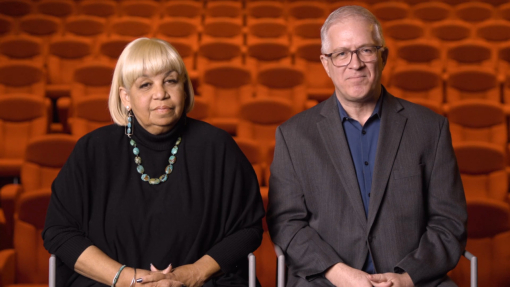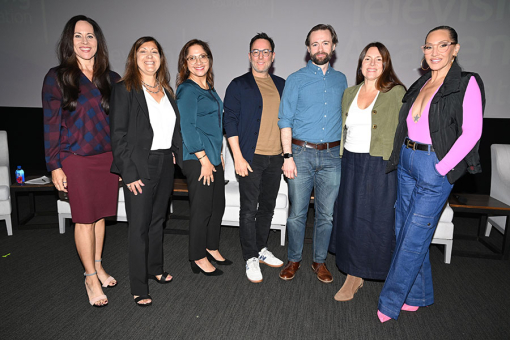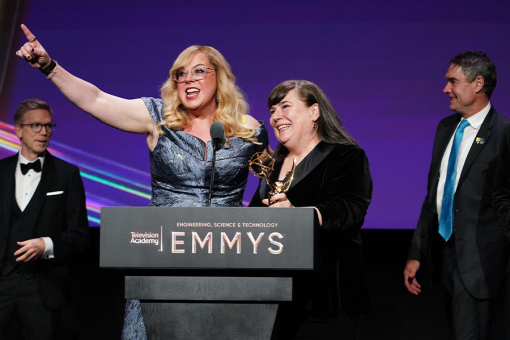The theme song lyrics opening the Netflix television show are familiar: "This is it. This is life, the one you get, so go and have a ball. This is it. Straight ahead and rest assured, you can't be sure at all. So while you're here, enjoy the view. Keep on doing what you do. Hold on tight, we'll muddle through, one day at a time."
Audiences first heard those words in the 1970s. This time around, they're sung by Gloria Estefan, to fast-paced music punctuated by conga drums and a snappy salsa beat. And that view to be enjoyed, which was once of Indianapolis and the white family who lived there, is now of the Echo Park area of Los Angeles, where quick cuts show a Latino family enjoying each other and some of the elements of their culture.
One Day at a Time, the 1975-1984 CBS sitcom about a divorced mother and her two daughters, is back, in a new version that is less a reboot than a reimagining and whose 13-episode first season began streaming on Netflix in January 2017.
The show is now about the Cuban-American Alvarez family: mom Penelope (Justina Machado), an Afghanistan military veteran separated from her husband who now works as a nurse; daughter Elena (Isabella Gomez), son Alex (Marcel Ruiz) and Penelope's feisty mother, Lydia Riera (Rita Moreno), who often steals the show with her wisdom and one-liners.
The only holdover character from the original series is Schneider (Todd Grinnell), still a ladies' man who functions as the apartment building superintendent, but here is the son of the building owner.
Like its predecessor, the series is executive-produced by Norman Lear, and like all shows of Lear heritage, it deftly weaves contemporary topics and social commentary into the comedic storytelling threads. Complaining to her mother that she wants her husband home, not doing private security in Afghanistan, Penelope says, "There are jobs where they don't shoot at you." Responds Lydia, "This is America. Name one!"
When Alex disobeys Penelope and buys five pairs of sneakers online instead of the approved one, his punishment is that he must wear Elena's sparkly sneakers. "The ones with the multicultural princesses?" he asks in alarm. Yes, says Mom. Though the shoes were too gender-specific for Elena's taste, "she did like that they were diverse."
Lear was developing the show when he met with Gloria Calderón Kellett, who became executive producer-showrunner with Mike Royce. It was Kellett who turned the Latino family into a Cuban-American one, reflecting her own family. She has said she wanted specificity when it came to portraying the characters' culture: Porto's Café, for instance, a Southern California Cuban mainstay, is not only mentioned by name in dialogue, but appears in the opening montage.
Storylines also reflect the greater Latino experience. Among the most poignant is the revelation that the parents of Elena's best friend Carmen have been deported to Mexico, and that Carmen must move to Texas to live with her brother. Some characters, particularly Cuban-born Lydia, speak both Spanish and English.
Yet the writing and acting are so sharp, and the actors' chemistry so palpable, that within the specifics of Cuban and Latino culture, the stories are relatable to viewers of any ethnic origin. This is a family, after all, and families the world over deal with many of the same issues within their individual dynamic.
In presenting topical issues, One Day isn't afraid to be dramatic when called for. When Penelope discovers that her boss, Dr. Berkowitz (Stephen Tobolowsky) is paying a male nurse $5 more an hour than she makes – a co-worker she's already called out for his sexist, dismissive attitude toward her – she is stunned, and quits out of principle.
"He asked for more than you did," the doctor points out. She admits that, newly single and back in the U.S. after her military duty, she was just happy to have a job offer and didn't think about negotiating – but rectifies that oversight and returns to work.
Penelope, a self-described "total badass" who can assemble a rifle in 13 seconds, suffers from PTSD nightmares and depression, as well as loneliness without a partner. Lydia is on hand to calm her down and be there for her.
Penelope is herself there for her own daughter at a crucial time. Elena confesses that she is gay – a story inspired by the coming-out of producer Royce's own teenage daughter. "Are you okay with this?" she asks. "Of course," Penelope replies. "I love you. I want you to be happy."
But Elena's long-absent father Victor (James Martinez), now back in the picture, is not okay with it. A continuing storyline throughout the season is Elena's Quinceañera, a Latino celebration of a girl's 15th birthday, which Elena has resisted because of the ritual's misogynistic origins.
When she changes her mind, she rehearses the traditional father-daughter dance and tells Victor she is gay. He recoils and refuses to accept that it is anything more than a phase. He does show up for the Quinceañera – but when it's time to dance, his chair is empty. He has left.
"I got you," Penelope tells Elena, beginning the dance with her. Soon the whole family has joined them. "I'm okay, you guys," Elena says, and the first season ends with a joyous, triumphant, celebratory dance.
For its portrayal of a family both Latino and universal, and depiction of such topical issues as LGBTQ prejudice and acceptance, immigration and veteran PTSD, One Day at a Time is a worthy recipient of a 2018 Academy Honors.









